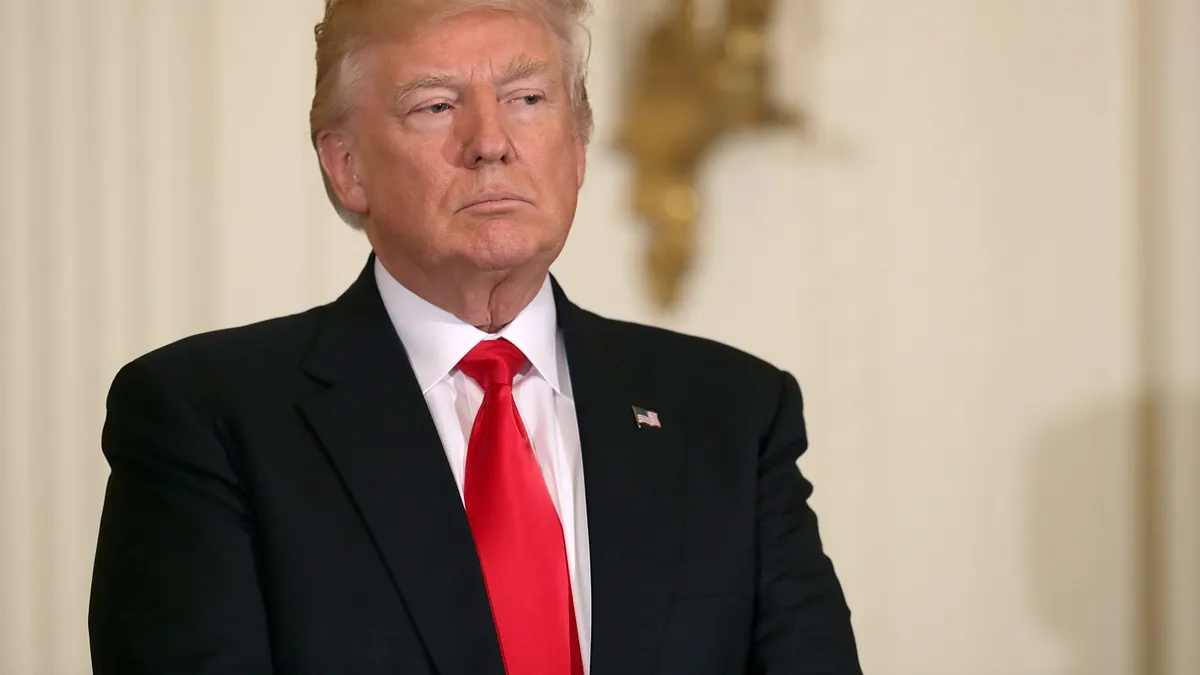Dive Brief:
- President Donald Trump called for more vocational education during his State of the Union address Tuesday night. "Let us open great vocational schools so our future workers can learn a craft and realize their full potential," he said.
- It was the lone explicit reference to education in the speech, tied to the need for greater investment in workforce development and job training.
- The call comes amid Senate committee hearings on Higher Education Act reauthorization, and it's an area of focus for U.S. Secretary of Education Betsy DeVos in both K-12 and higher ed.
Dive Insight:
As NPR education correspondent Anya Kamenetz noted in an annotation on the transcript of the speech, DeVos has touted vocational education options ranging from two-year degrees to newer options, such as stackable credentials, badges and microdegrees. And as you might expect, given the reality competition show Trump is perhaps best-known for, apprenticeships have also come back to the forefront in the educational conversation.
The need for better career and technical education options predates the Trump administration, however. Amid pushes around college-readiness over the past decade-plus came the realization and acceptance that, in spite of best efforts, not every student is likely to go to college and earn a degree. For many, it's just not feasible due to economic realities or a variety of other reasons.
At the same time, the traditional blue-collar fields high-school graduates typically entered — including manufacturing and retail — are being disrupted by automation and artificial intelligence, necessitating a focus on new fields. Some have suggested, for example, that computer science and coding could be a staple of the new blue-collar job field, given that demand for skilled workers is at a point where more positions are available than there are people to fill them. Coding boot camps and other alternative credentialing programs have demonstrated that it's a field where workers can be efficiently equipped with the technical skills needed to succeed.
Ultimately, both K-12 and higher education have been forced to contend with the realities of a shifting economy and the need to adapt how they educate students in ways that provide the greatest return on investment (though the use of that phrase breeds further debate on what "ROI" means if a student isn't measuring the value of their chosen field monetarily). If anything, the next few years are sure to provide plenty more challenges, especially in higher education, when it comes to proving the relevance and value of services provided via traditional avenues.









 Dive Awards
Dive Awards


